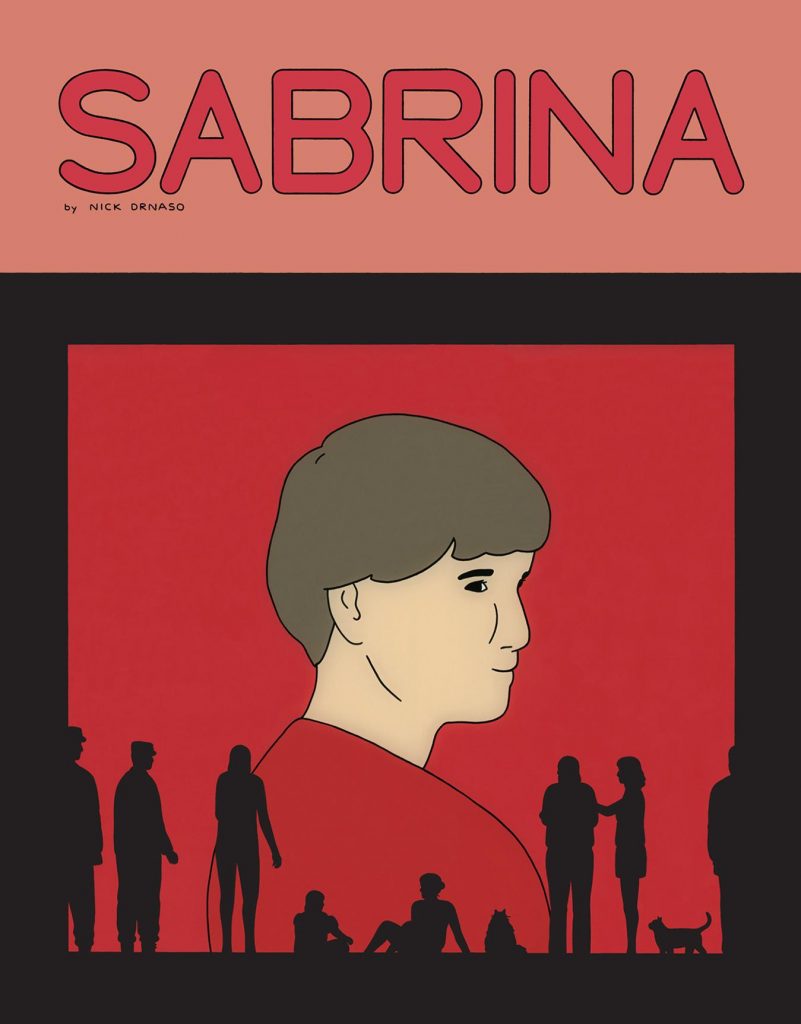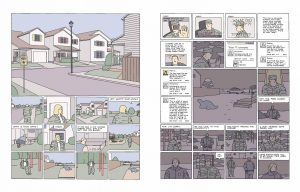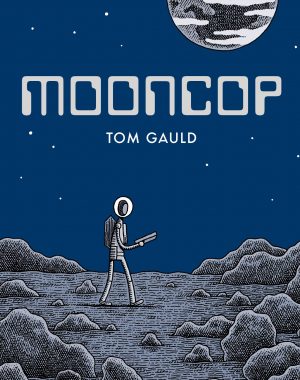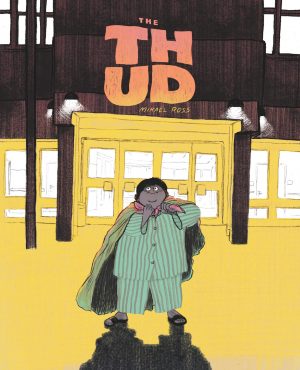Review by Frank Plowright
Sabrina concerns isolated lives of lost souls in varying degrees of disintegration. Central to everything as Nick Drnaso’s story begins is the unexplained disappearance of a young woman, and spiralling outward we’re introduced to three people affected to a greater or lesser degree. Most prominent is Calvin Wrobel, to this point career military, but considering the options for his future with a failed marriage already behind him. He’d like to be a better father, but until his term expires he’s stuck on a military base investigating computer security weaknesses. He’s providing a room for Teddy, a childhood friend who’s shut himself off from the world since his girlfriend Sabrina disappeared. Also affected is Sandra, Sabrina’s sister.
For a relatively unknown creator with just a collection of short stories behind him, this is an immense contemplation, not just about the topics, but the best way to present them. There’s a deliberate anonymity to the cast, their features nondescript and unshaded, muted colours reflecting the downbeat mood, and storytelling techniques that depart from the obvious, such as readers learning about events second hand through conversations occuring later. Little devices reveal so much. Before logging on to his work each day Calvin has to complete a tick box questionnaire as to his mental health, and the succession of these scattered throughout the book mirror his moods. There’s no fear of using text-heavy panels to reveal online messages or radio broadcasts, nor of wordless sequences of people going about their business in silent contemplation. However, this is a style requiring acclimatisation as the opening sequences are deliberately banal with Drnaso playing on dramatic expectations by displaying devices that could be innocent or could have a sinister purpose.
Once the cast have been presented, video footage emerges, and from that Drnaso introduces the applied theme of questioning how much anyone or anything can be trusted in the 21st century. Almost everyone has a voice and the means to project it far and wide, with the most vocal those not prepared to believe straightforward explanations, and seeing any minor error or inconsistency as proof of official cover-ups. It’s some achievement that Drnaso manages to convey the attitudes of conspiracy theorist broadcaster Albert Douglas and online commentator Truth Warrior non-judgementally. While Douglas is provided with a background, neither is ever seen, nor does Drnaso expand the debate into why so many are willing to believe people proved wrong time and again. Yet Calvin tries to do the right thing, but doesn’t always manage it, so are Douglas and Truth Warrior equally sincere? Teddy barely speaks throughout the 200 pages, yet is masterfully characterised, familiarity with dramatic tropes again exploited to engender an expectation of an explosion. Elsewhere Sabrina demands a mature understanding of life, a realisation that what seems a callous and cruel telephone conversation is a form of venting from someone frustrated to the depth of their soul by the lack of explanations.
Drnaso offers no answers or closing thoughts beyond life continuing as it always has done, perhaps a form of comfort in the face of ongoing concerns about the topics addressed. This ultimate message may be dramatically unsatisfying, but it’s true to his narrative. By turns heartbreaking and thought-provoking, Sabrina is a compelling welcome to a voice worth listening to.







